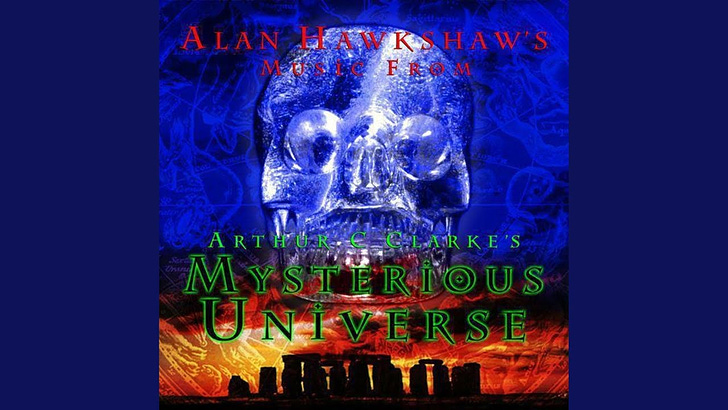Hello internet pals of music. Today we’re going to ponder the effect that media sophistication has had on the wonder of mystery, through a score by the great library music composer.
Arthur C. Clarke not only wrote 2001, he was a futurist who contributed brilliant ideas such as satellite-based telecommunication purposes, a global library of hundreds of television channels and a global computer network system. In 1980, Yorkshire Television produced a thirteen episode series titled, Arthur C. Clarke’s Mysterious World. The episode titles are a fortean checklist: Ancient Wisdom, Giants for the Gods, Monsters of the Deep, Strange Skies. The series is on Youtube, in its entirety, fitting to Clarke’s predictions of a global information landscape. I highly recommend them.
SERMONS! is reader-supported. If you’re wishing to support my work, I encourage you to become a subscriber.
The network Showtime has a series that one can stream right now simply called UFO. Without going into great detail, the four part series unpacks the complicated story of the Pentagon’s Advanced Aerospace Threat Identification Program and the bizarre cast of people involved. Included are some of the most inexplicable videos of UFO encounters, and a side story of Skinwalker Ranch, a paranormal nightmare zone in Utah, where cryptozoology, hauntings and alien visitors all meet in some kind of weird and deadly vortex. I also recommend it.
But watching them both, I couldn’t help to compare them, or really to contrast their tone and think about how media sophistication has warped us. The music plays a part in this.
Arthur C. Clarke’s Mysterious World was scored by veteran Alan Hawkshaw, whose career highlights include working with Olivia Newton-John, David Bowie, composing the theme for Cadbury’s Milk Tray (The Night Rider) and being sampled by Jay-Z. When I first started becoming fascinated with Library Music, his name popped up most frequently, particularly his work for the KPM label.
The show, and topics are well, mysterious. In 1980, these kinds of “investigations” were fringe enough that the idea of the Loch Ness Monster carried weight. Patterson’s famous Bigfoot film hadn’t been fully debunked, the strange story of Anna Mitchell-Hedge’s crystal skull still had a plausibility. Mysterious World doesn’t answer questions or riddles. The interviews aren’t probing; the subjects are either unassuming (like the Canadian mother and bored daughter talking about seeing the lake monster Ogopogo), or they’re full-blown caricatures, academics with high affectations, terrible toupees, silly monologs about the probability of dinosaurs in “The Congo”.
It’s all very very fun. Hawkshaw’s score is a strange mixture of big keyboard washes, and string cues. It feels like a late 70s ambient album by someone like Don Slepian, and perfectly fits the subject matter. As with the show, the music feels open to the joys of the unknown.
Showtime’s UFO feels much different. The series is not interested in questions. It seeks answers. It is decidedly less fun. There’s certainly humor, but it plays out more sarcastically, maybe: it’s so weird you couldn’t make this up. The kind of thing that is perfect material for the new era of documentary series that streaming / binging capabilities have been feeding us since 2015’s The Jinx. Subsequently, the music only has one real role, which is to move us from one scenario or character to the next. There’s no color to it. It just bubbles ominously underneath.
My point in thinking about all of this is that the understanding of media has become so sophisticated on both the part of the producer and the consumer that we lose so much wonder in the mystery of not having answers. And we as consumers have had that drilled into us in ways that we’re told, mirrored how to be, how to speak, how to engage with the camera. That doesn’t seem so fun.
Arthur C. Clarke’s Mysterious World can be viewed here.
SERMONS! is brought to you by Musik Klub. You can also find Jamie on Twitter and Instagram, if that’s your thing. Like what you’re hearing? Help spread the word!
Musik Klub: “Everythang’s Workin”



